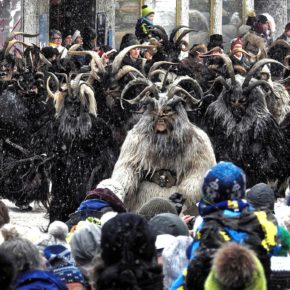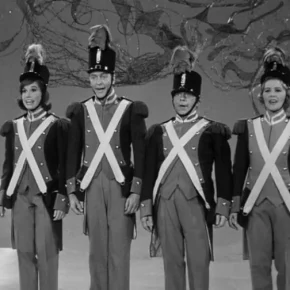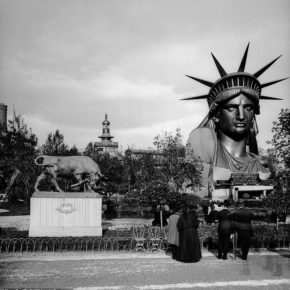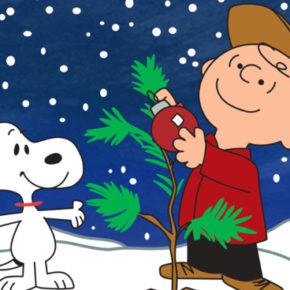Last night, sprite and I went to see a fundraiser concert by David Wilcox and his life partner, Nance Pettit. The concert, held at St. Mark’s Episcopal Church on Capitol Hill, featured songs from Wilcox and Pettit’s upcoming benefit album, Out Beyond Ideas. I’m quite sorry to report that this show, for all the promise it held, was such a disappointment.
I’ve been a fan of David Wilcox’s music since I first heard him at the Telluride Bluegrass Festival in 1991. His deep, baritone voice was like smooth velvet, and his guitar playing, full of alternate tunings with judicious capo usage, was infectious. He was a standout amonsgt many standouts at the fest that year (including James Taylor, Indigo Girls, Béla Fleck and The Flecktones, and Strength In Numbers).
Since then, I’ve followed Wilcox’s carrer with much interest. I stuck with him as his former record label, A&M, didn’t know how to market him and dropped him just as his songwriting was beginning to achieve increasing variety and depth. I saw him in both big venues (Kingsbury Hall at the University of Utah) and small (Iron Horse Music Hall in Northampton, Massachusetts), where he was able to engage the audiece with his songs and stories of life, Americana and faith.
This last point is one that I noticed him gravitate towards over the years, as he peppered his albums with more and more songs about faith and spirituality. The transition in songwriting from The Nightshift Watchman and How Did You Find Me Here to Turning Point and Into The Mystery is quite marked: where Wilcox’s songs originally dealt with things like the Cold War (“The Nightshift Watchman”) and the perils of a 1950’s hot-rod (“Rusty Old American Dream”), his newer lyrics are directed internally and toward questions of faith and grace.
“So she fell back into her past
where her beauty-mark would last
so the camera could never have found her
In the big boring middle
of her long book of life
after the twist had been told
If you don’t die in glory
at the age of Christ
then your story is just getting old”
– “Glory” from Turning Point
Said songs make up over half of the content of his more recent albums, and it’s no coincidence that this newest project is full of songs with lyrics based on ancient mystical poetry from a variety of traditions. All of the poems deal with love and faith, with most have overtly religious overtones.
I’m not one who finds fault with this approach. Some of my favorite songs of all time – “Blessed” by Paul Simon, or “Turn! Turn! Turn!” by Pete Seeger – are based directly on religious texts from the Bible, and others talk of serving a higher power, like “Gotta Serve Somebody” by Bob Dylan. But I find it tough to witness a performer’s work compromised by a shift in lyrical focus.
This is part of what bothered me with this show. Wilcox’s best and most enduring songs are ones that don’t preach, but inform and reflect. Songs like “This Mighty Ocean,” “Eye Of The Hurricane,” “Waffle House” and “Johnny’s Camaro” all lovely stories of love, adenture, loss and moving on with life. They have different cadences and different boods, all the while telling compelling stories of life. All speak of faith and spirit without overtly preaching the gospel of a specific faith, and all have lyrics that are time-worn and elegant.
“Sure I’ve been in town before
But never quite so quickly
And never from a place so far away
But if this color carbon ticket
Says that I can fly the ocean
Well maybe I can think of what to say”
– “This Mighty Ocean” from Home Again
“I don’t look all that ragged for all the time it’s been,
But I’m weakened underneath me where my frame is rusted thin.
And this year’s state inspection just barely passed
Won’t you drive me ‘cross the country, boy,
This year could be my last.”
– “Rusty Old American Dream” from How Did You Find Me Here
So I was intrigued to read about the new Wilcox-Pettit project. Wilcox has often cited Pettit as his muse, as well as his life partner, and she has appeared on almost all of his albums as a backing vocalist or adviser. The fact that they chose ancient poetry as their lyrical base also sounded fine to me, something that, if done well, is most compelling.
However, last night’s performance left me flat. While it was obvious that Wilcox and Pettit enjoyed sharing the stage, there were many things that weren’t right with the performance:
- The lyrics didn’t really speak to me the way that Wilcox’s own usually have. The poetry – most of it a translation of the originals – often ended up as “words that tear and strain to rhyme,” as Paul Simon once wrote.
- Wilcox and Pettit strained to achieve any harmonic balance. Some of this was due to the terrible mix that the house engineer produced. The mix seemed to focus on the performers, rather than the audience. Wilcox’s baritone was largely swallowed by Pettit’s mezzo-soprano, which made for a tough listen. Some of this may be due to the fact that Wilcox’s voice is markedly better than Pettit’s (no surprise, as Pettit happened into music after she met Wilcox), but a lot of it was due to the poor house mix.
- The duo had with them a drummer whose percussion primarily detracted from the music. Either they needed as bassist, or no drummer.
- When the group added a third voice (Leda Saeedian, a Farsi scholar), her voice drowened out both Wilcox and Pettit. While her singing was some of the most compelling of the night, it wasn’t mixed right, either.
- The new songs mostly loped along – great for sleeping, not so good for sustained listening. Only one of the songs had the classic Wilcox shuffle, which is part of what drew me to his music in the first place.
- The pre-intermission talk from Dr. Suheil Bushrui of the Univeristy of Maryland’s Center for International Development and Conflict Management was a sleeper. For one, I don’t wholly subscribe to his theories of international diplomacy and peacemaking (something I’ll go into in a later post); secondly, he went on about 10 minutes too long.
So overall, it was not the best Wilcox show I’ve ever seen, and I doubt I’ll buy his new album when it comes out. It’s a bit painful for me to walk away from one of my favorite musicians, but his increased focus on his faith has hurt his songwriting, in my estimation, and there are new musical windows open for me to explore. Perhaps Richard Shindell has finally moved up to the top of my male folkie ranks.













Comments by randomduck
virtual advent 2020: a fab holiday (and it’s been 40 years…)
@compassionknit: I think the issue is that John had Julian ...
ten on tuesday: the music died too young
Good call on those three!
my 30s: a look back
Thanks, Darren and Jeff! Jeff, riding along the California coast with ...